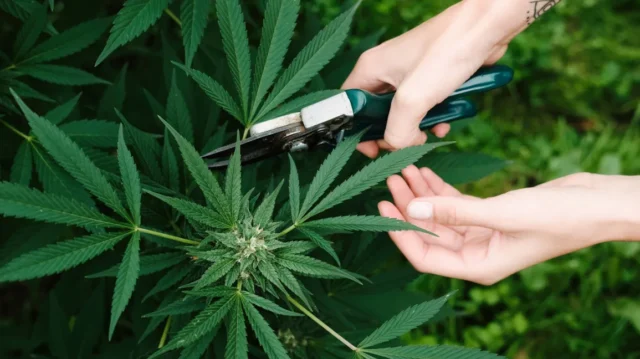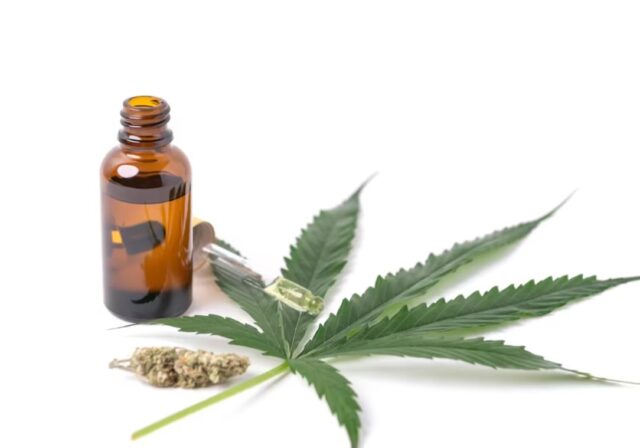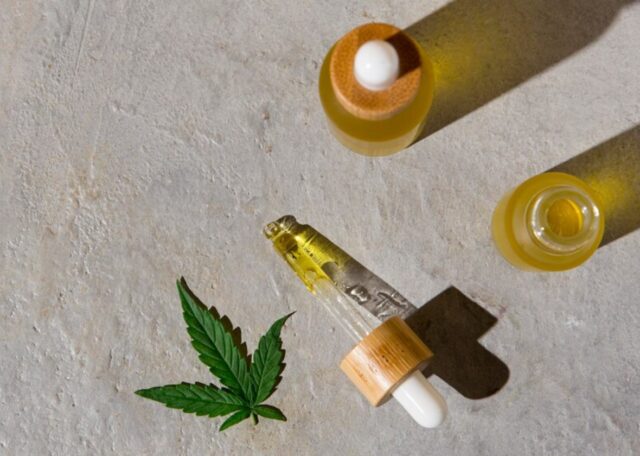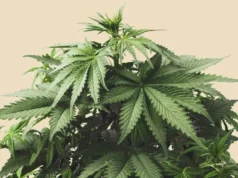
It seems like there’s always something interesting happening on the cannabis front, which is to be expected from an industry that’s still relatively young and has a huge untapped potential. Whether it’s a new cannabis brand hitting the shelves, a recent study on the health benefits of this highly controversial plant, or another celebrity joining the CBD hype, there’s never any shortage of cannabis news to keep us well-informed and thoroughly entertained.
With all the buzz surrounding the cannabis sector, it can be rather difficult to distinguish between myths, misinformation, fleeting fads and hard facts or trends that are actually worth paying attention to. So, it’s no wonder many people still don’t know what to make of the delta-8 THC phenomenon that has been dominating the cannabis world for the past few years.
While the whole world knows about CBD and its equally famous cousin THC, not the same can be said about delta-8 THC. Even though the compound has been widely discussed and its popularity has soared recently, there’s still a lot of confusion regarding this topic.
Everyone is talking about it, but only a few have a good understanding of it. A lot of users are eager to discover Delta-8 THC products and see how they compare with other cannabis-derived goods, but newness usually makes people more reluctant.
So, if you want to learn more about this intriguing newcomer and figure out if it’s worth giving it a try, here’s a short introductory guide to help you out.
What is delta-8 THC?

It’s already known that delta 8 THC is one of the most popular cannabis alternatives on the market at the moment, but that doesn’t provide much insight into the compound’s specific characteristics. In simple terms, delta-8 THC, short for delta-8-tetrahydrocannabinol, is a chemical substance that occurs naturally in the cannabis sativa plant. Scientists have managed to discover over 100 different cannabinoids so far, and delta-8 THC is one of them. However, due to the fact that each cannabis plant only contains very small amounts of delta 8 THC, most of it has to be extracted from CBD or THC through a synthetical process called isomerization.
Like many other cannabis-derived products, delta-8 THC can be found in many forms, from joints and oils to gummies, vapes and more. So, in this respect, delta-8 THC is very much comparable to CBD. However, the difference lies in the effects it produces. While CBD is mostly known for its pain-relieving and relaxing properties and its non-psychoactive nature, delta-8 THC provides a mild high sensation similar to that of THC.
For a lot of users, delta-8 THC brings the best of both worlds together – it has all the health benefits of CBD combined with a subtle euphoric sensation reminding of THC.
How did the delta-8 THC hype start?

There’s no denying that delta-8 THC is one of the most popular cannabinoids on the market. But how did it become so famous in the first place? Over the years, we’ve seen cannabis trends come and go, yet no one really knows how these trends are born. When it comes to delta-8 THC, it’s difficult to pinpoint the exact moment when the buzz started, but we have a fairly good idea of what fueled its popularity.
The compound has been around for decades, being identified by scientists in the ’40s, but its rise to prominence started a few years back, driven by two important factors. The first one was the oversaturation of the cannabis market with too many CBD products, which led to a significant fall in prices and prompted producers to find new uses for the substance. So, they decided that the best solution was to convert it into delta-8 THC.
Then there was increased interest in finding a suitable alternative to THC that would help people bypass legal restrictions. THC use is still heavily regulated in many parts of the world, which poses a problem for those who want to enjoy the benefits it provides. Delta-8 THC came to solve this problem, giving consumers easy access to a wide range of products that are similar to THC but are not subject to the same legal constraints.
Delta-8 THC vs delta-9 THC

Speaking of THC, it’s pretty obvious there’s a strong connection between this cannabinoid and delta-8 THC, as their names suggest it. This is another reason why many people get confused when they hear about delta-8 THC, as they assume these compounds are one and the same thing.
There are definitely many similarities between delta-8 THC and delta-9 THC, but they’re far from being identical. Delta-8 THC is, in fact, an isomer of delta-9 THC, which makes their chemical structures very similar, with only a double bond on the eighth carbon atom making the difference. However, this small difference changes a lot in terms of effects.
So, while THC is known for the high sensation it produces, delta-8 THC is colloquially referred to as THC’s nicer cousin because it’s a lot milder.
Regulations and legality

Another aspect that many people are concerned about is delta-8 THC’s legal status. This remains a complex issue, given that the regulatory landscape is constantly changing to keep up with the developments in the industry. While the 2018 Farm Bill led to higher acceptance of cannabis products by legalizing the cultivation and commercialization of hemp, delta 8 THC is only considered legal at the federal level, so its legality largely depends on each state’s regulatory system. That’s why it’s necessary to do your research about cannabis regulations in your area before purchasing any products.
As you can see, delta-8 THC is a very appealing cannabis alternative. So, whether you decide to try it or not, chances are you’re going to hear a lot more about it in the future.









